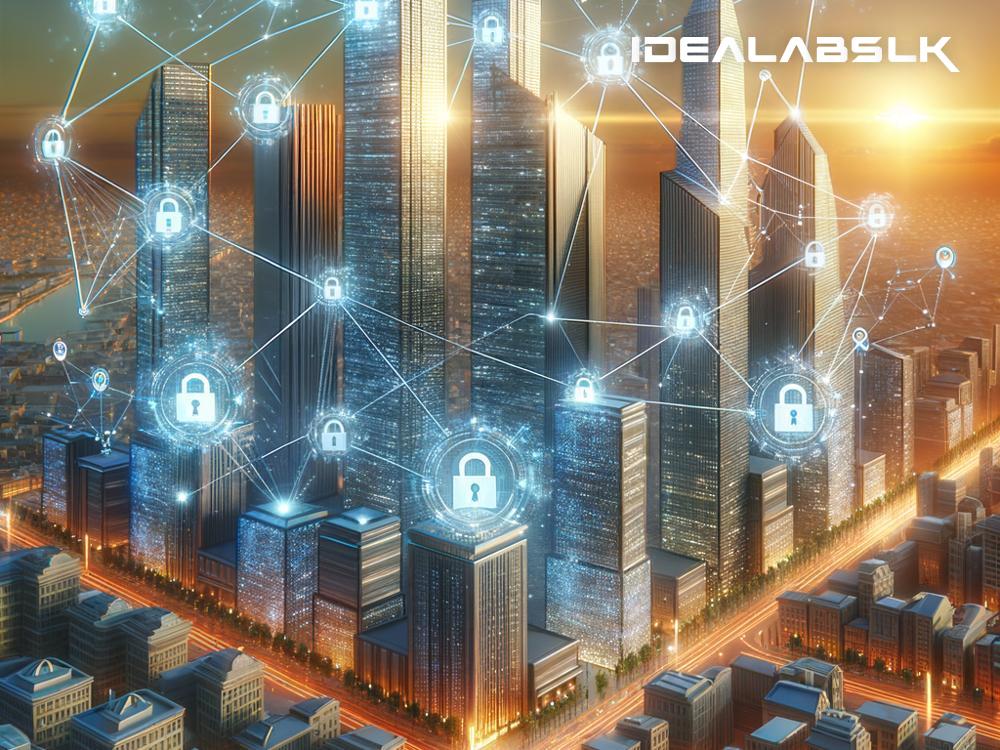Unveiling the Future: How Blockchain is Reshaping Real Estate
In today’s fast-paced world, technology's evolution has been reshaping industries, and the real estate sector is no exception. One breakthrough technology, blockchain, is stirring significant transformations, especially in how we buy and sell properties. This digital ledger technology, best known for powering cryptocurrencies like Bitcoin, is now decentralizing the real estate process, making transactions more secure, transparent, and efficient. Let's dive into how blockchain is changing the game for everyone involved in real estate.
The Basics of Blockchain in Real Estate
To understand the impact of blockchain on real estate, it's essential first to grasp what blockchain is. Imagine a digital ledger that is shared among various users; this ledger records transactions in real-time and in a secure manner. Each transaction is a 'block' linked to the previous one, forming a 'chain,' hence the name blockchain. This technology is decentralized, meaning it doesn't rely on a central point of control. Decentralization makes the system more secure and transparent, as it's incredibly difficult to alter any information without the consensus of all participants.
Streamlining Property Transactions
Traditionally, buying or selling a property involves a heap of paperwork, middlemen like lawyers and estate agents, and a lengthy verification process for the property's history and ownership. Blockchain simplifies this process remarkably. By recording property details and transactions on a blockchain, buyers and sellers gain access to a transparent history of the property, reducing fraud and speeding up the verification process. This means faster transactions, reduced costs from cutting out many middlemen, and a more straightforward buying or selling experience.
Enhanced Security and Transparency
One of blockchain's standout features in real estate is the level of security and transparency it offers. Each transaction on the blockchain is encrypted and linked to the previous transaction, making unauthorized alterations practically impossible. Moreover, since the blockchain ledger is decentralized and distributed across many computers, there's no single failure point. This strong security framework significantly reduces the risk of fraud, a concern that has plagued the real estate industry for years.
Moreover, blockchain's transparency ensures all parties have access to the same information, fostering trust in transactions. In traditional real estate deals, there's often a significant information gap between buyers, sellers, and agents. Blockchain eliminates this, ensuring everyone is on the same page.
Tokenization of Real Estate Assets
An exciting development blockchain introduces to real estate is the concept of tokenization. This process involves dividing property into tokens that represent ownership or a stake in real estate assets. These tokens can then be bought and sold on blockchain platforms. Tokenization makes real estate investment more accessible to a broader range of people by lowering the entry barriers and allowing for the purchase of fractional ownership in properties. It also offers more liquidity, as tokens can be more easily traded than physical properties.
Real-World Applications and Challenges
Several startups and established companies are exploring blockchain's potential in real estate. Some are creating platforms for listing properties, others for managing leases and rental agreements, and some focus on the tokenization of assets. These applications demonstrate blockchain's versatility and potential to revolutionize the real estate industry.
However, the journey isn't without challenges. Regulatory hurdles, the need for widespread adoption, and the technical complexity of blockchain technology are significant barriers. Despite these challenges, the momentum behind blockchain in real estate suggests a promising future where these issues are gradually addressed.
The Road Ahead
Blockchain in real estate is still at a relatively early stage, but its potential is undeniable. By decentralizing the property buying and selling process, blockchain introduces a new level of efficiency, security, and transparency to the real estate industry. As technology matures and more players enter the space, we can expect to see significant shifts in how real estate transactions are conducted.
In conclusion, while hurdles remain, the blockchain revolution in real estate is well underway. Whether you're a buyer, seller, or investor, the ramifications are profound, heralding a future where real estate transactions are more accessible, secure, and equitable for all. We're standing on the brink of a new era in real estate, powered by an innovation that promises to reshape the industry from the ground up.

